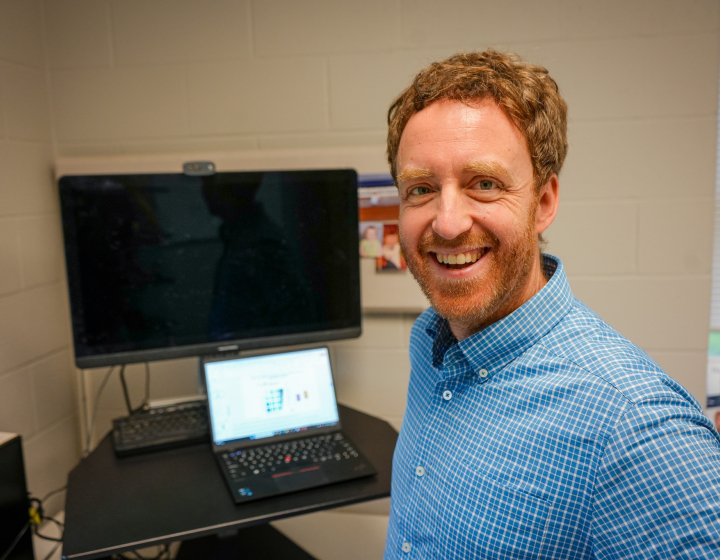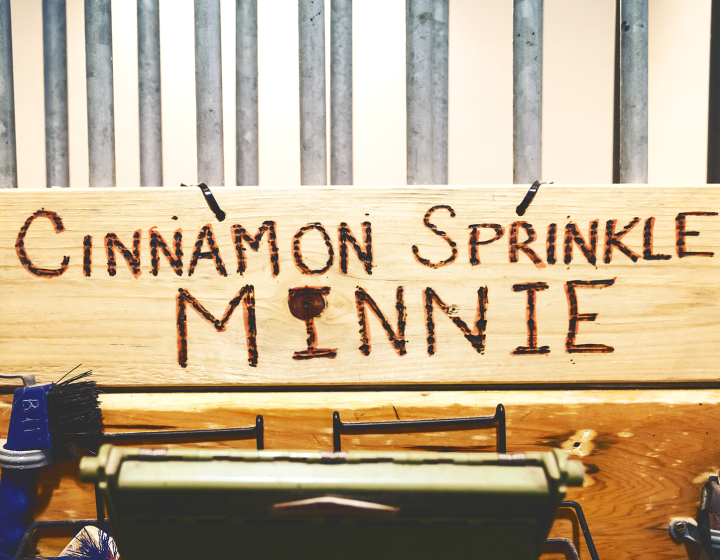Julio Sanchez
Julio Sanchez
Ph.D. Candidate, Cerione Lab
Q: What is your area of research, and why is it important?
Phosphatase and Tensin Homologue Deleted in Chromosome Ten (PTEN) is one of the most frequently lost tumor suppressors in cancer and has been implicated in having pleotropic roles that go beyond its canonical role as the negative regulator of PI3K signaling. Indeed, loss of PTEN contributes to drastic changes within the tumor immune microenvironment (TIME), dramatically contributing to the inclusion of immunosuppressive myeloid cells and the exclusion of cytotoxic T cells. As such, is now appreciated to have clinical significance as a pan-cancer biomarker for patients who are unlikely to respond to immunotherapies. Cancer cells respond to the inflammatory cytokine interferon-γ (IFN-γ) by upregulating PD-L1, however, studies investigating how PTEN loss intersects and or influences this process of adaptive immune resistance are limited and warrant further investigation. Our lab and others have shown that extracellular vesicles (EVs) have been implicated as important modulators of the TME, contributing to immunosuppression, tumor growth, vascularization, and metastasis. Given the relevance both PTEN loss and IFN-γ signaling have in immunotherapy responses, I aimed to characterize how these signaling axes could independently and synergistically impact the TIME through EV-mediated mechanisms. Using several isogenic glioma cell lines with or without PTEN, along with pharmacological inhibitors, I show that loss of PTEN leads to a significant increase in EV biogenesis and PD-L1 enrichment. Lastly, I demonstrate that this two-fold change in EV numbers and PD-L1 cargo is functionally superior in suppressing T cell receptor signaling in an in vitro setting. These results add to a growing body of evidence implicating PTEN in having an immunosuppressive role and highlights a previously unappreciated role in its ability to regulate EV biogenesis and cargo sorting. This work is important in understanding the molecular mechanisms by which aggressive cancers, like glioblastoma, refuse to respond to immunotherapy treatments. I hope this work adds to the field in a meaningful way and helps develop better therapeutic strategies.
Q: What initiatives are you are involved within the BBS Program?
My first few years I was fortunate enough to participate in the BBS welcome events where we host prospective students. I was lucky enough to bring my own experiences to the table (literally) when I spoke to the students about their life and research interests, it was rewarding, fun and felt great to be able to represent the BBS program. Later, I was involved in the inception of the BBS Graduate Student Society, where I established its social media presence, logo, and formed events to bring students together. My favorite part was being able to feed students right after our WIP presentations and catch up with friends or when I was grill master at one of the BBQ welcome events.
My contributions extend into the community, where I've participated several times in the Expanding Your Horizons and Fall Into Science programs, each dedicated to teaching young middle school girls and elementary students, respectively, about science and STEM careers through fun, hands-on, educational workshops to promote their pursuit in STEM education.
I feel like my biggest contribution to BBS has been from being my outspoken and curious self even when it made me feel in the spotlight. When I go to a seminar or listen to a WIP presentation, I go with the intention to learn and to discuss the subject matter. For many, it is not easy to translate thoughts into coherent words. It's intimidating, it makes us feel vulnerable, self-conscious and want to avoid the spotlight. I felt all these things every time I raised my hand to ask a question, regardless of the setting. I feel like my legacy will be sees as the notorious person who asks questions, ha-ha. It's something I've come to appreciate about myself and bring it forth with pride more than ever.
Q: What are your hobbies outside of your academic work?
Outside of lab you will find me at home playing video games (Halo Infinite currently), playing with my cats and giving them some darn good scritches. The most important hobby of mine is photography. Being in Ithaca has been transformative, especially when it comes to the outdoor landscapes! Ithaca is dynamic, it can be wet, hot, colorful, eerie, humid, foggy, sunny, full of snow and everything in between. Going outside with my camera was a personal challenge to capture something unique, but it also became meditative, as it brought my senses and thoughts into the present moment. Without this hobby, I don't think I would have kept a clear enough mindset to complete the PhD, given all the turmoil that has occurred in the last 5 years. It really made me appreciate being on the east coast and made me fall in love with New York. Check out my work on Instagram if you're interested! @catalytic_photos
Q: What advice would you give an entering Ph.D. student?
My advice to first year students is to explore their inner feelings, insecurities, joys, and ways on how to promote a healthy lifestyle that will synergize with their academic training. Just like we are all here to educate ourselves in our fields of interest, we also need to grow as empathetic human beings through processes that promote self-awareness. To be self-aware of our feelings/thoughts means to be able to identify why we feel a certain way, a trigger, that leads to autonomic response (e.g. being hangry) that do not bring us positive feelings in life. Being conscious of these processes will allow you to harness flight or fight responses, when to ask for help, develop tools to re-frame negative thoughts and to ultimately build healthy coping mechanisms with ourselves and others. Be intentional and kind to yourself when things are hard, talk to your friends or DGS, make time and plans with others to check out the wineries, walk on a frozen lake or build a snowman, the key is to be intentional outside of lab as it is within. I hope you all have a great time here, good luck!
Q: Anything else to share?
My commitments outside of BBS have been with the Cornell Chapter of SACNAS (Society for the Advancement of Chicanos, Hispanics and Native Americans in Science). As a first-generation Mexican-American (Chicano), it was important for me to not only seek community, but build it within the institutions I attend. I held the position of social chair for two years and then president for my last year here. Honestly, it was amazing. I made many friends here, we built community, brought in faculty speakers, had amazing potluck and cultural events and so many other fun things while creating an inclusive environment for our members. This community allowed me to interact with many undergraduate students, something I felt was important for me to do as I find it imperative and necessary to lift the next generation of scientists.




